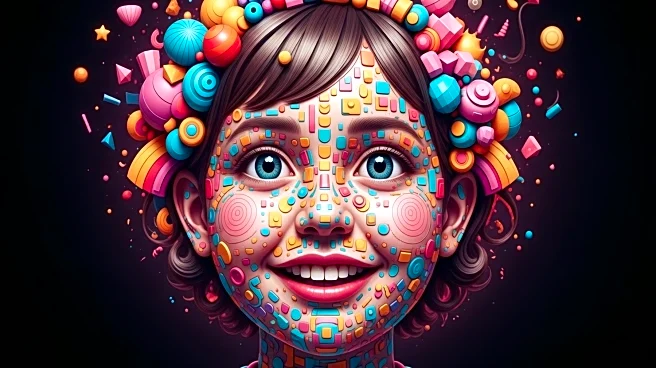What's Happening?
A recent study conducted by neuroscientists at Anglia Ruskin University has discovered that adults can recall more detailed childhood memories after experiencing a virtual 'enfacement illusion.' This illusion involves participants viewing a live, altered image of their face that resembles how they looked as children, creating a temporary sense of embodying their younger selves. The study, published in Scientific Reports, involved 50 adult participants who underwent this illusion and subsequently completed an autobiographical memory interview. The findings revealed that those who perceived themselves with a childlike face recalled significantly more episodic childhood memories compared to a control group who viewed their unaltered adult faces. This research suggests that altering body perception can unlock forgotten memories and may inform new approaches for memory rehabilitation and research into childhood amnesia.
Why It's Important?
The study's findings have significant implications for understanding the interaction between bodily self-perception and memory recall. By demonstrating that temporary changes to body perception can enhance access to remote memories, this research opens up potential avenues for developing techniques to aid individuals with memory impairments. The ability to recall detailed childhood memories could be particularly beneficial for therapeutic practices and interventions aimed at addressing memory-related challenges. Furthermore, the study provides insights into the phenomenon of childhood amnesia, which typically occurs before the age of three, and suggests that similar bodily cues may help retrieve memories from this early stage of life. This research could pave the way for innovative methods to access previously inaccessible memories, offering new hope for those with memory impairments.
What's Next?
The researchers at Anglia Ruskin University plan to explore more sophisticated body illusions to unlock memories from different stages of life, potentially even from early infancy. Future studies may focus on adapting the illusion technique to create interventions that aid memory recall in individuals with memory impairments. The findings also encourage further investigation into the relationship between bodily self-perception and autobiographical memory, which could lead to new therapeutic approaches for enhancing memory recall. As the research progresses, it may contribute to a deeper understanding of how bodily experiences are encoded in memory and how they can be leveraged to access remote memories.
Beyond the Headlines
This study highlights the ethical and psychological dimensions of memory recall, particularly in the context of therapeutic interventions. The ability to access detailed childhood memories through body perception alterations raises questions about the potential impact on individuals' emotional well-being and the ethical considerations of manipulating self-perception for therapeutic purposes. Additionally, the research underscores the cultural significance of memory and identity, as it explores how bodily experiences are intertwined with personal history and self-concept. These findings may influence future discussions on the role of memory in shaping identity and the potential for technology to enhance memory recall.








